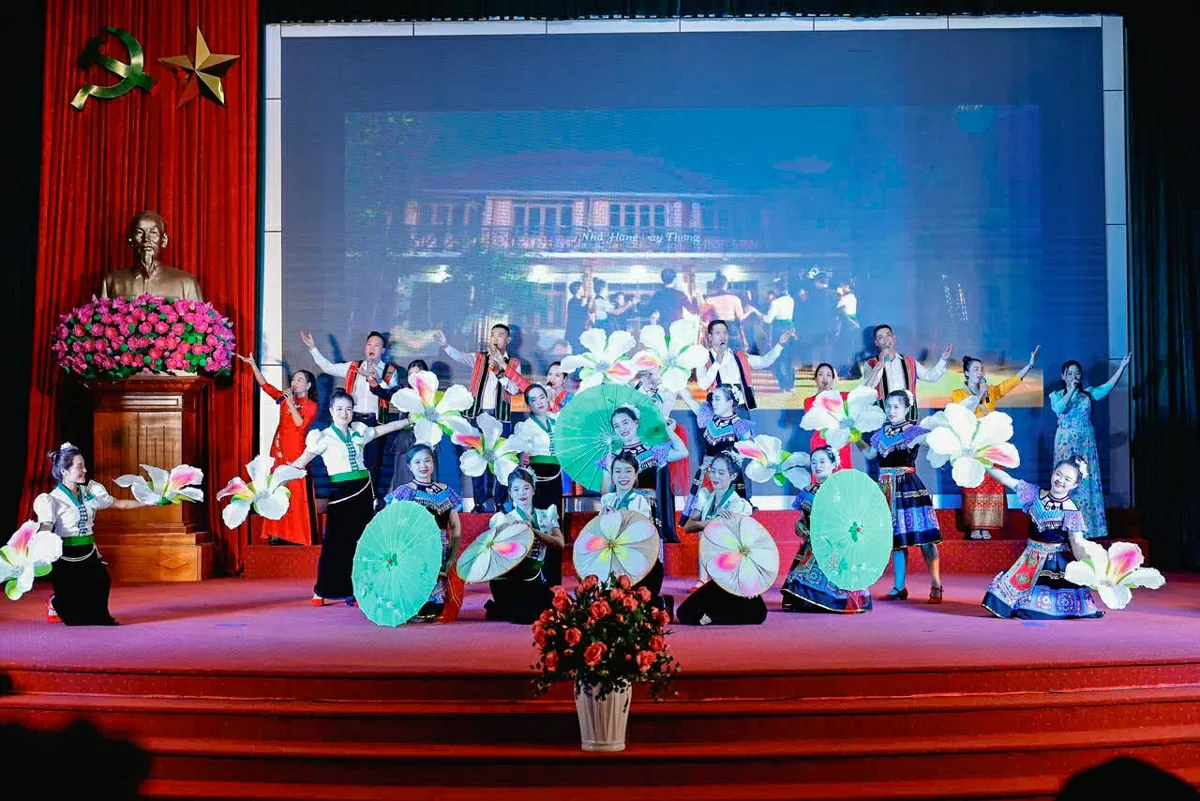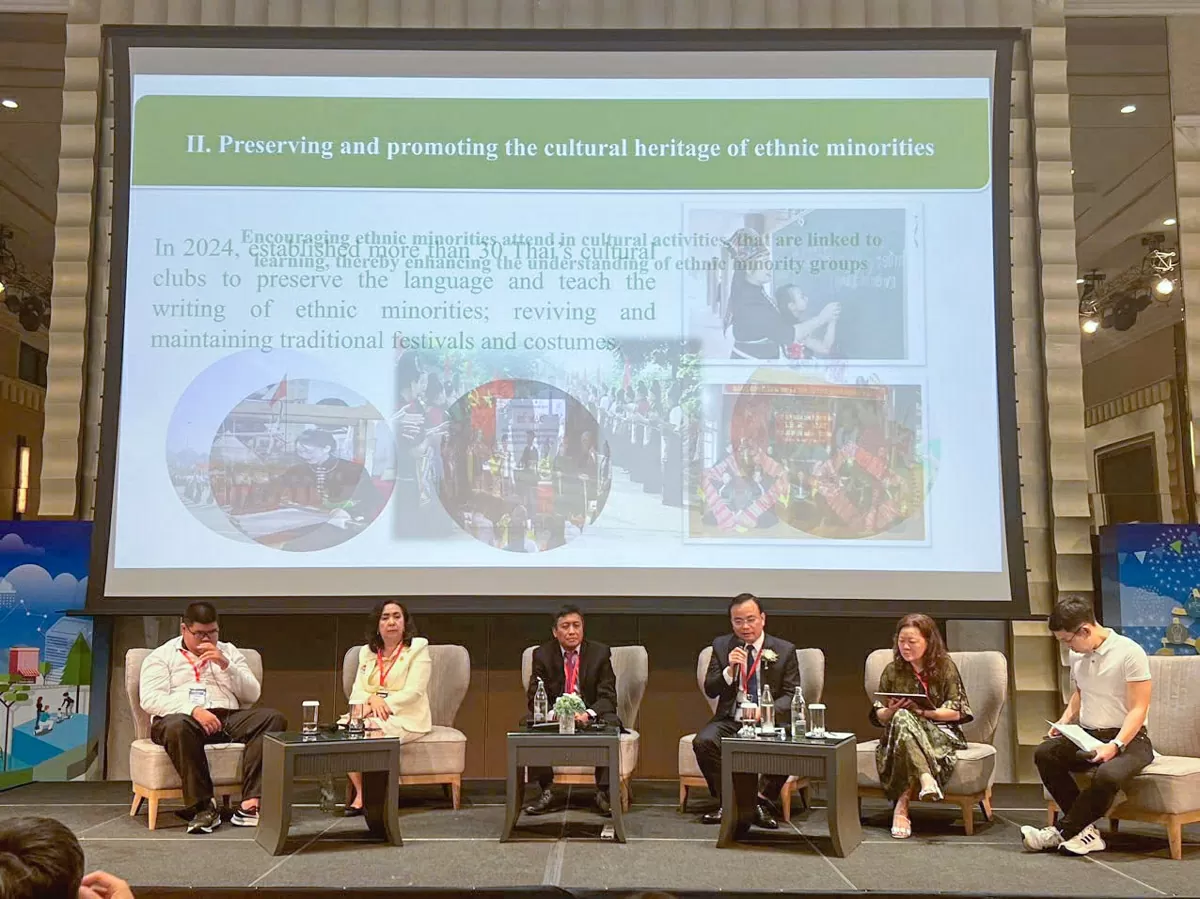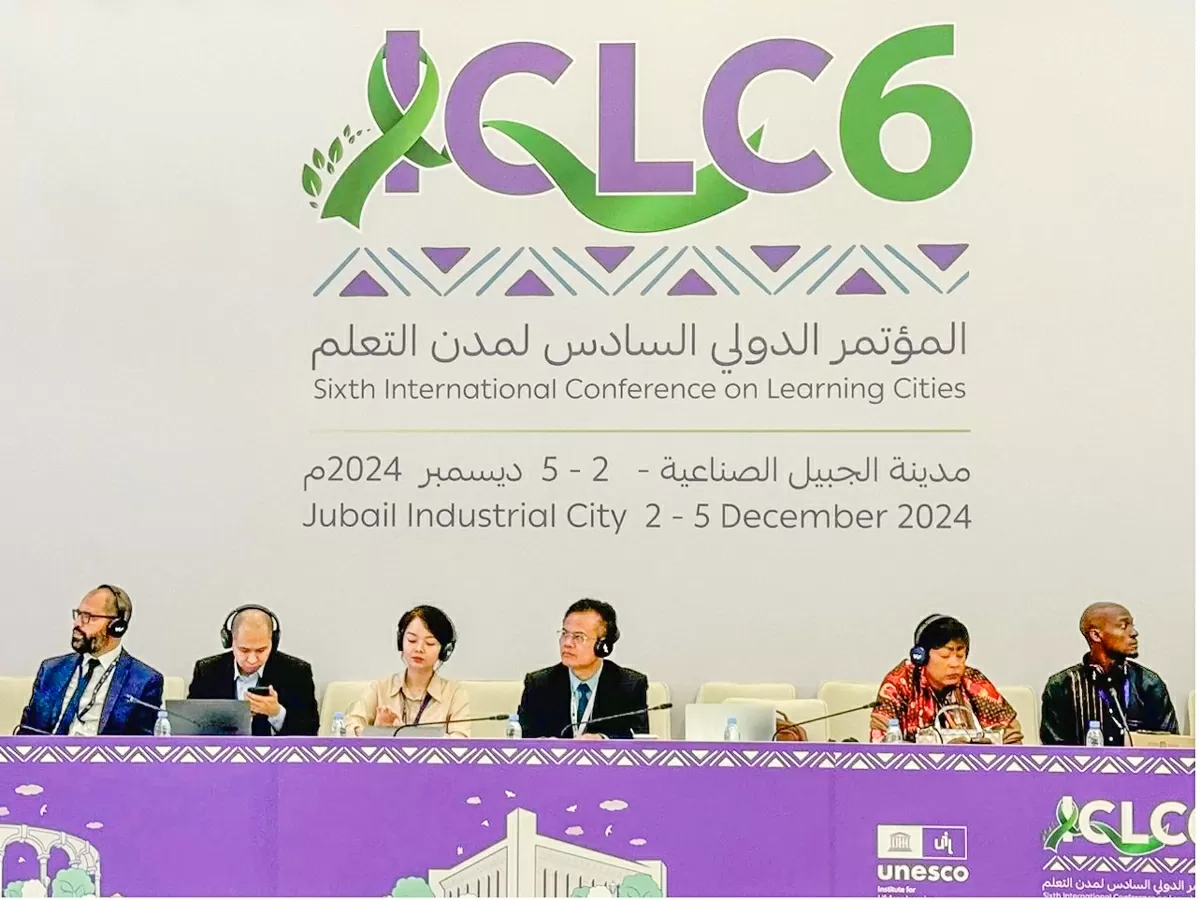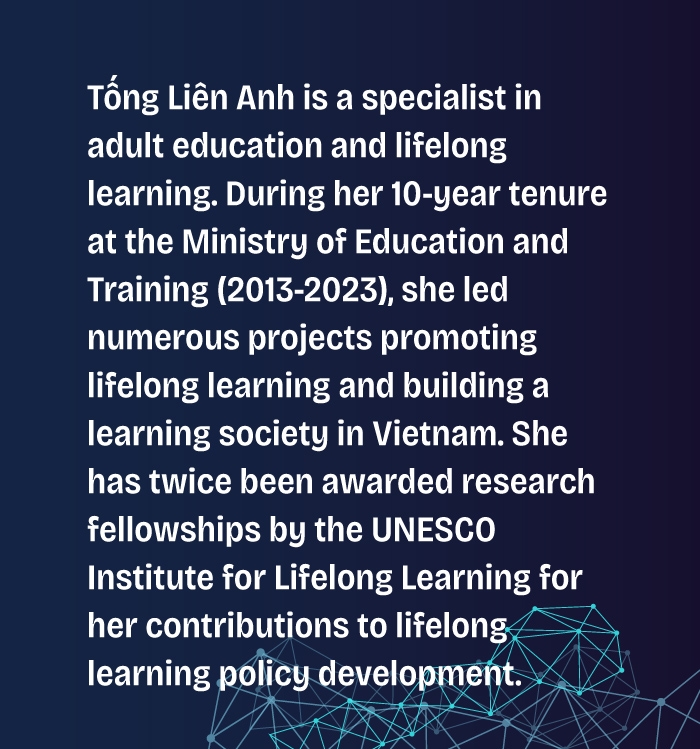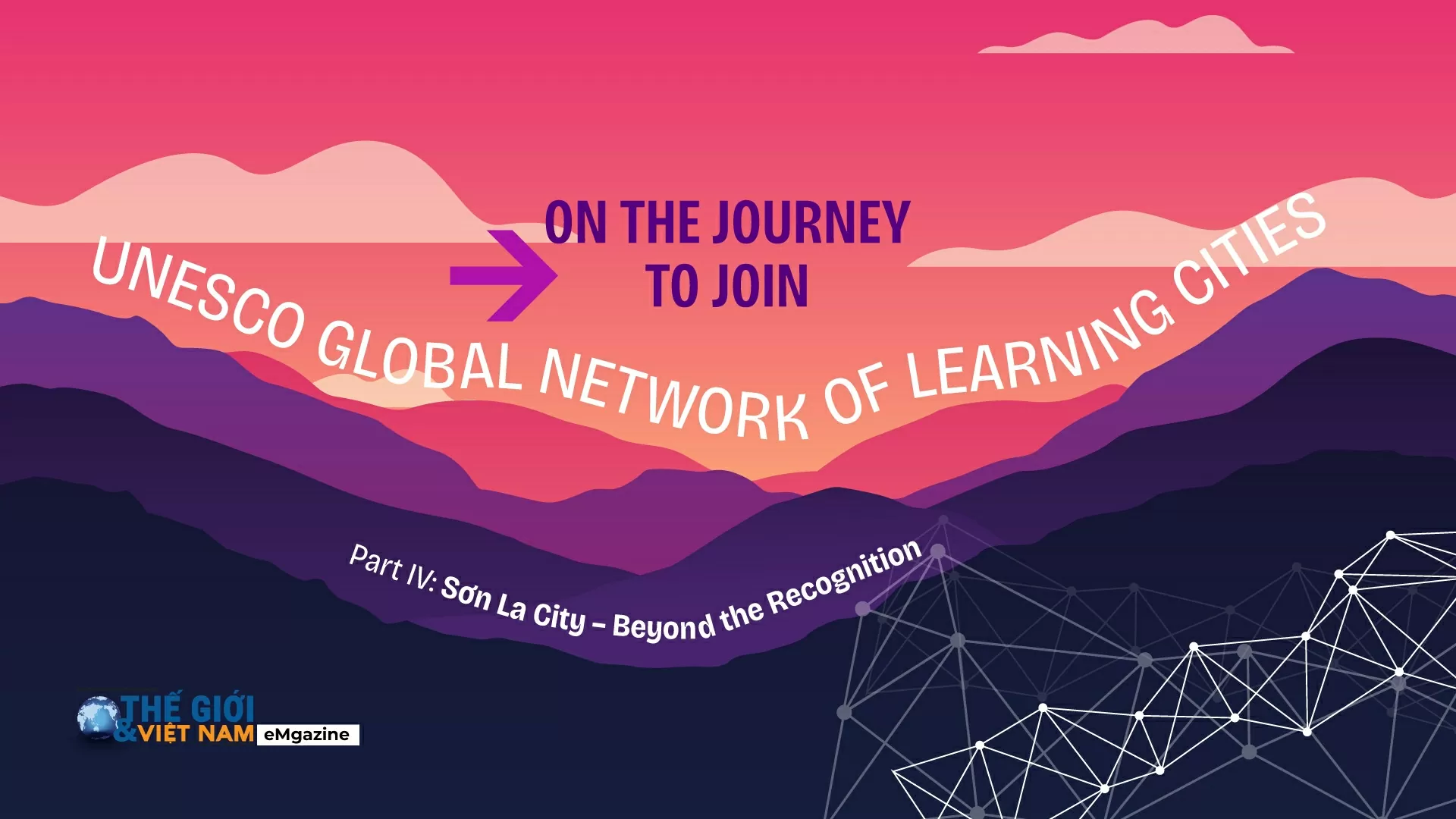 |
| On February 14, 2024, Son La city - a mountainous city in northern Vietnam - was officially recognized as a member of UNESCO Global Network of Learning Cities. The announcement, arriving at the dawn of the Lunar New Year, brought immense pride to Vietnam. However, it also raised a crucial question: How did Son La—a locality still grappling with economic and educational challenges—achieve such a prestigious distinction? |
On a late June afternoon, the relentless rains of the Northwest engulfed the winding road to Son La. My journey to this highland city was driven by a powerful statement: "Even if there’s only a 0.01% chance, Son La will give its all and see it through to the end!". These were the unwavering words of Assoc. Prof. Dr. Nguyen Huy Hoang, Director of the Son La Department of Education and Training, who traveled over 300 kilometers through mountainous terrain to meet me in Hanoi. At that time, only ten days remained before the final deadline to submit the UNESCO application, yet his determination was resolute. |
|
| My journey to Son La began at 2 PM from Hanoi, under an ominous sky. As we approached Thung Khe Pass (White Stone Pass), torrential rain blurred visibility, turning the road into a perilous challenge. With sheer cliffs on one side and deep valleys on the other, I remained silent, contemplating the landscape shrouded in mist. Son La city welcomed me under the cover of darkness, but by dawn, our meetings commenced with unwavering focus and urgency. By early afternoon, I was already en route back to Hanoi, as the skies cleared and sunlight illuminated the towering mountain peaks. The 36-hour whirlwind trip, spanning nearly 700 kilometers, was not defined by its physical demands but by the unyielding spirit of those committed to their goal. With relentless effort, Son La restructured its entire application, aligning it with UNESCO's vision—pursuing a dream that once seemed beyond reach.
Joining UNESCO Global Network of Learning Cities is not merely about educational achievements or economic performance. Many localities mistakenly believe that more developed cities hold a competitive edge in the selection process. However, this is a misconception. If rigid criteria were applied, mountainous and economically disadvantaged cities would have no chance to participate—contradicting UNESCO's core mission of promoting equal access to education and ensuring diversity within the network. Son La City before joining the UNESCO Global Network of Learning Cities Son La stands as a testament to this inclusive approach. Compared to Ho Chi Minh City and Uong Bi (Quang Ninh Province) - two cities also applying for membership in 2023 - Son La could not compete in terms of GDP growth, educational investment, digital transformation, or national and international academic achievements. However, instead of engaging in direct competition with economically advanced cities, Son La pursued a distinct strategy - leveraging its unique strengths that align with UNESCO’s priorities. The city recognized that emphasizing its distinctive educational, cultural, and social development strategies would be the key to success.
Son La strategically positioned its rich cultural heritage at the heart of its educational development plan, creating a compelling narrative for its UNESCO application. The city embraced the mission of preserving and promoting the heritage of 12 ethnic communities - accounting for over 55% of the population—as a unique advantage in building a sustainable learning city. The slogan “Lifelong Learning, Enduring Culture, Bright Future, Deep Integration”encapsulates not only a strong commitment but also a vision that harmoniously balances education with cultural preservation. The city's application underscored this synergy with concrete initiatives. The art of Xoe Thai - a UNESCO-recognized intangible cultural heritage - was skillfully integrated into community education programs, allowing younger generations to inherit and cherish their cultural roots. Son La continues its efforts to preserve and promote the six traditional Xoe Thai dance forms, reviving festivals and showcasing local traditions as part of community-based tourism initiatives. |
|
| Additionally, preserving the Thai ethnic language and script has been a priority, with cultural clubs providing a space for the community to engage in learning and creative expression in their native language. Poetry and folk song competitions in the Thai language are regularly organized, fostering a deep love for cultural heritage and reinforcing the unique identity of the Thai people. These initiatives not only safeguard valuable heritage but also cultivate a rich learning environment where every resident connects with their cultural roots. |
| |
| Son La city preserves the Thai ethnic language and script |
| By making culture the cornerstone of its educational development, Son La has fostered a closely-knit community, promoted lifelong learning, and contributed significantly to sustainable economic growth - creating a learning city rich in cultural identity.
Beyond cultural preservation, Son La places a strong emphasis on social inclusion, positioning it as a fundamental value of the city. The application highlights efforts to build an equitable society where all citizens—particularly vulnerable groups—have opportunities to learn and develop in alignment with UNESCO’s global goal of “leaving no one behind”. A striking example is the fact that 62.88% of government staff are from ethnic minority backgrounds, and 43.66% of leadership positions are held by women—demonstrating the city's commitment to promoting employment opportunities, career advancement, and gender equality. Moreover, Son La has implemented inclusive education programs for children with disabilities, enabling 88% of them to access appropriate educational opportunities within a supportive community environment. Building Son La – A learning city In addition, Son La has focused on economic solutions to ensure long-term social inclusion. Between 2021 and 2023, the city attracted investments to develop two industrial zones, launched key economic projects, and supported small and medium-sized enterprises in expanding production - creating jobs for the local population. Notably, the city has introduced hiring policies prioritizing vulnerable groups, including low-income households, to ensure stable employment and integration into the local economy. Son La's strategic approach has successfully highlighted its distinctive values, offering a model that harmonizes lifelong learning, cultural preservation, social inclusion, and sustainable development - proving that a city's true strength lies in its uniqueness rather than its economic indicators.
On February 14, 2024, Son La City was officially recognized as a member of the UNESCO Global Network of Learning Cities, marking a historic milestone that brought immense joy to its residents and astonishment to many. UNESCO announced this prestigious achievement during a high-level online event themed "Empowering Learners of All Ages: How UNESCO Learning Cities Transform Lives." Despite the late-night timing in Australia—where I currently live and study -I eagerly stayed up to celebrate the news alongside Son La City and Ho Chi Minh City. |
|
| It was a proud and emotional moment, but not an unexpected one. Having accompanied, advised, and supported Son La throughout its journey, I had witnessed the unwavering determination and strategic vision of the city’s leadership, along with the dedicated and responsible efforts of its staff. Their collective commitment and relentless efforts have turned a dream into reality. |
|
| However, what has impressed me most after a full year since Son La's official induction into the network (February 2024 - February 2025) is not just the title itself, but the city's unwavering commitment to making it truly meaningful. Mr. Ha Trung Chien, Secretary of the Son La City Party Committee, affirmed that joining the UNESCO Global Network of Learning Cities was only the beginning. The city still has a long way to go across various sectors—from enhancing people's knowledge to boost household economies, scientifically preserving ethnic cultural identities, to making tangible contributions to the community. He emphasized that the destination of a learning city is undefined; instead, persistence and gradual progress must ensure every step benefits the people and the city's sustainable development. This spirit has guided Son La’s development over the past year, gradually affirming its position. Initial doubts - whether a mountainous city could integrate into an international network - have been dispelled through well-structured plans, concrete actions, and tangible results. The vision of building Son La into a learning city is no longer just a slogan on paper. I t has resonated throughout every village and street. Learning has become a shared inspiration, helping residents recognize that knowledge is the key to transformation, progress, and the preservation of their invaluable cultural heritage.
Within a short period, all 12 wards and communes of the city established Learning City Steering Committees, implementing specific plans to translate the overarching vision into practical actions. Learning communities at the grassroots level have been established, becoming hubs for sharing knowledge and experiences among residents. The most remarkable aspect is not just the decisive involvement of local authorities but also the enthusiastic participation of the people - ordinary individuals with an extraordinary thirst for knowledge and self-improvement. With the spirit of "Contribute one book to read many", organizations and individuals across the city have contributed thousands of volunteer workdays, nearly 2 million valuable books, and financial support amounting to billions of Vietnamese dong, resulting in the creation of 130 Houses of Wisdom and Compassion Libraries. |
|
| Each House of Wisdom and Compassion Library serves not only as a place for reading and learning but also as vibrant hubs of cultural and intellectual exchange. Here, people gather to share production experiences, learn parenting skills, preserve their ethnic cultural heritage, and nurture traditional values. From Thai language classes to workshops on household economic development, livestock, and farming - or simply quiet moments with a book - these initiatives have created a dynamic learning environment that connects generations. |
|
| Son La City continues to promote a learning culture through a series of innovative and inspiring initiatives. The contest “Son La – The Global Learning City I Love”, held between September and October 2024, emerged as a standout event, attracting nearly 300 entries across various fields, including visual arts, music, poetry, and sustainable development ideas. This competition ignited creativity and instilled a sense of pride and responsibility among residents to contribute to the city's learning journey. |
|
| Numerous impactful activities, such as Vietnam Book and Reading Culture Day and Lifelong Learning Week, have been organized, creating meaningful "knowledge festivals" that drew widespread public participation. Notably, the success of the Elite Hill Marathon was not merely a sporting event but a symbol of resilience, perseverance, and the core values of a learning city's citizens. |
Alongside knowledge advancement, Son La places strong emphasis on preserving and promoting ethnic cultural identities. In response to Resolution No. 1186 of the City Party Committee, the city has established and maintained 36 ethnic cultural clubs, where traditional folk songs, dances, and musical instruments continue to be passed down from generation to generation, serving as a unifying force for the community and enriching the city's cultural heritage. |
|
Son La is not only making strides domestically but also actively seeking international cooperation and learning from global best practices. The city has participated in key international forums, such as the Southeast Asian +3 Learning Cities Conference in Bangkok, Thailand. At the event, Mr. Ha Trung Chien delivered an inspiring speech on the theme “Leaving No One Behind”, emphasizing Son La’s commitment to inclusive and sustainable learning city development. |
|
| Building on this momentum, Son La sent a delegation to the 6th International Conference on Learning Cities in Jubail, Saudi Arabia. There, Mr. Do Van Tru, Vice Secretary of the City Party Committee and Chairman of the People's Committee, shared Son La’s strategies for mobilizing financial resources to address urban climate change challenges, highlighting education’s vital role in sustainable development. These proactive contributions have earned Son La international recognition, opening doors for future cooperation and growth. |
|
Son La’s recognition as a UNESCO Global Learning City was not a stroke of luck but the result of relentless dedication, thorough preparation, and a steadfast commitment to meaningful action. The city has proven that despite economic and infrastructural challenges, strategic vision and collective determination can overcome any obstacle.
Son La – A Global Learning City and Its Vision for the Future. Eighteen months ago, Son La welcomed me with torrential mountain rains and bid me farewell under radiant golden sunshine atop its winding passes. That brief journey allowed me to witness the city's remarkable and inspiring transformation before, during, and after joining the UNESCO network. Although this is just the beginning of a long road ahead, Son La city’s initial achievements serve as a powerful source of inspiration and a valuable lesson for other cities aspiring to join this prestigious global network. |
Author: Tong Lien Anh | Design: Lim Dim | Photo and Video Source: Author provided


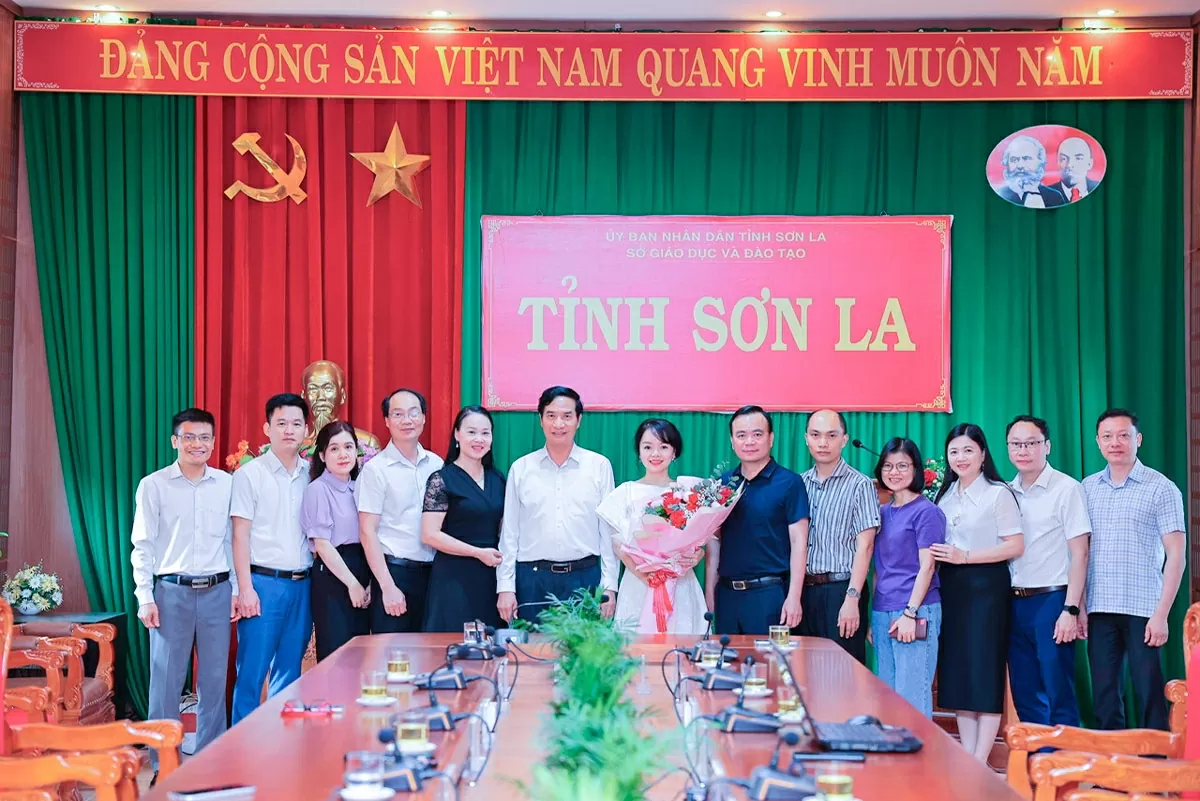


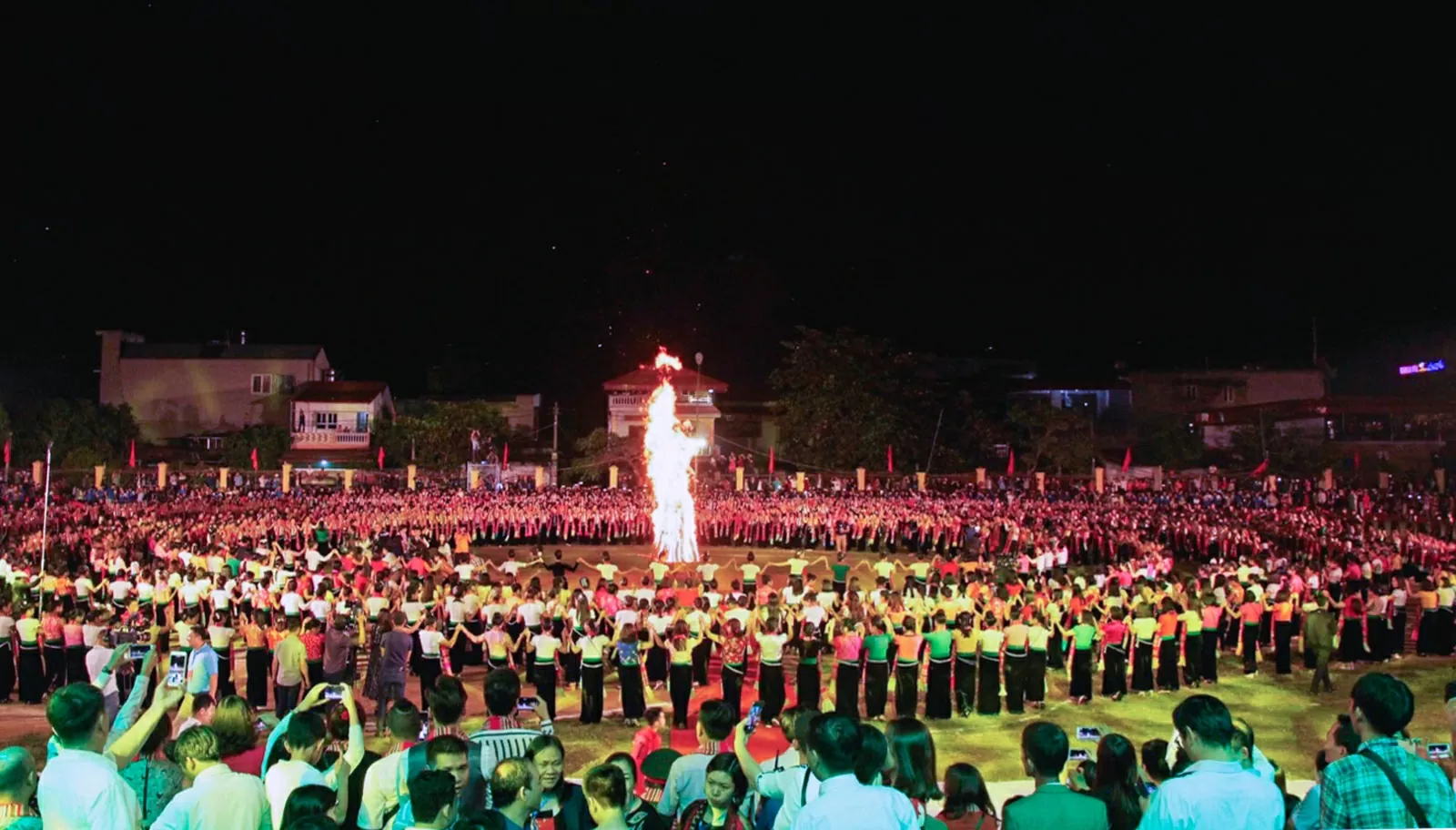
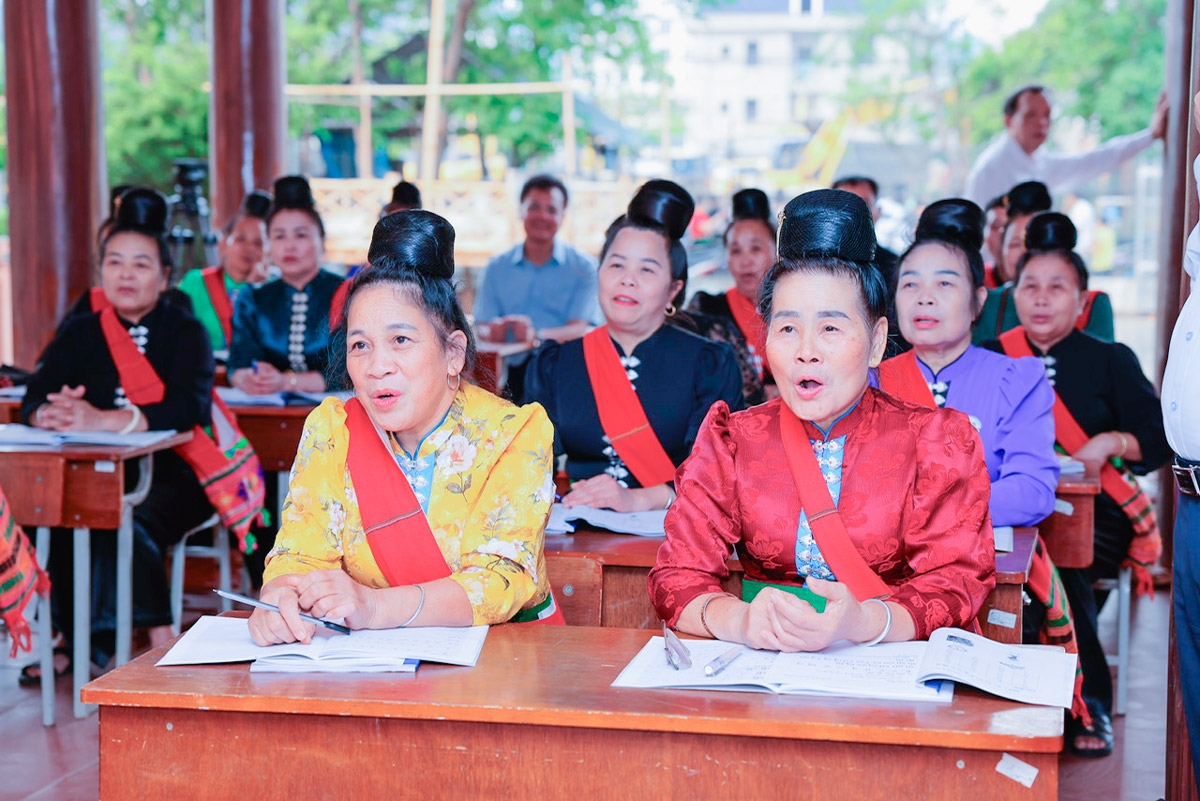
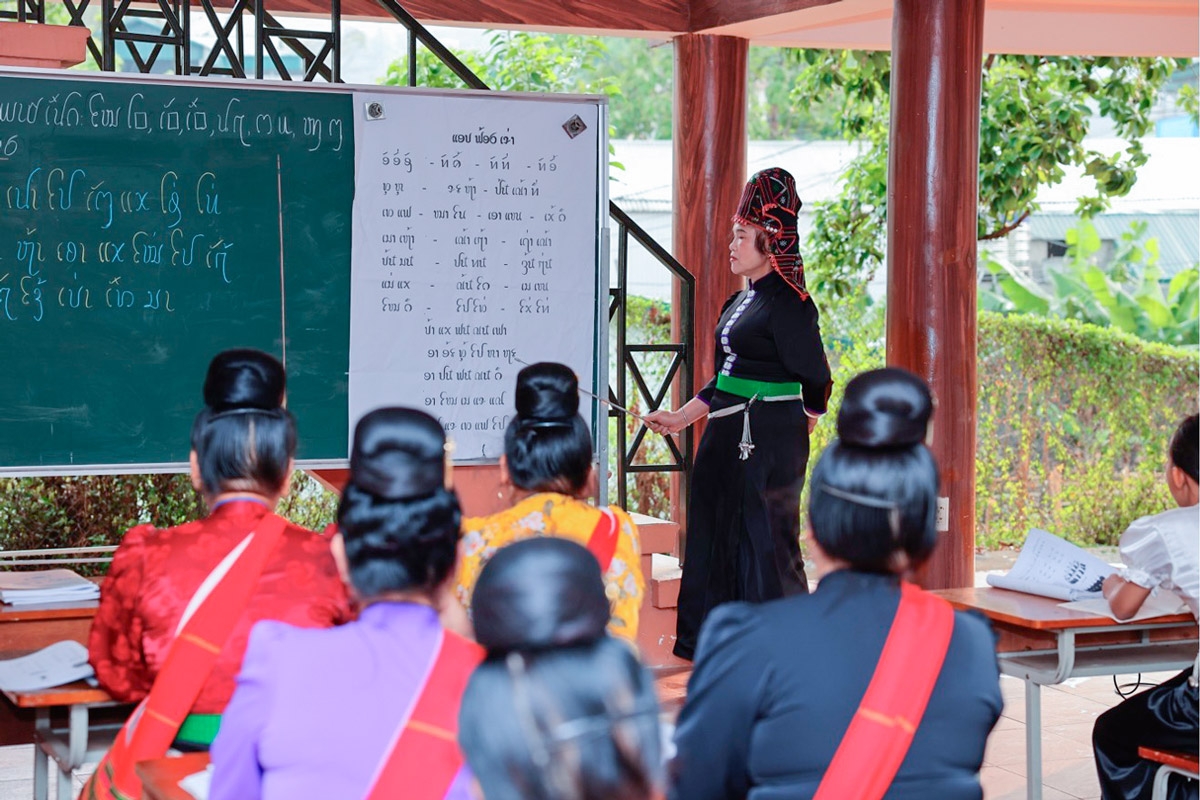


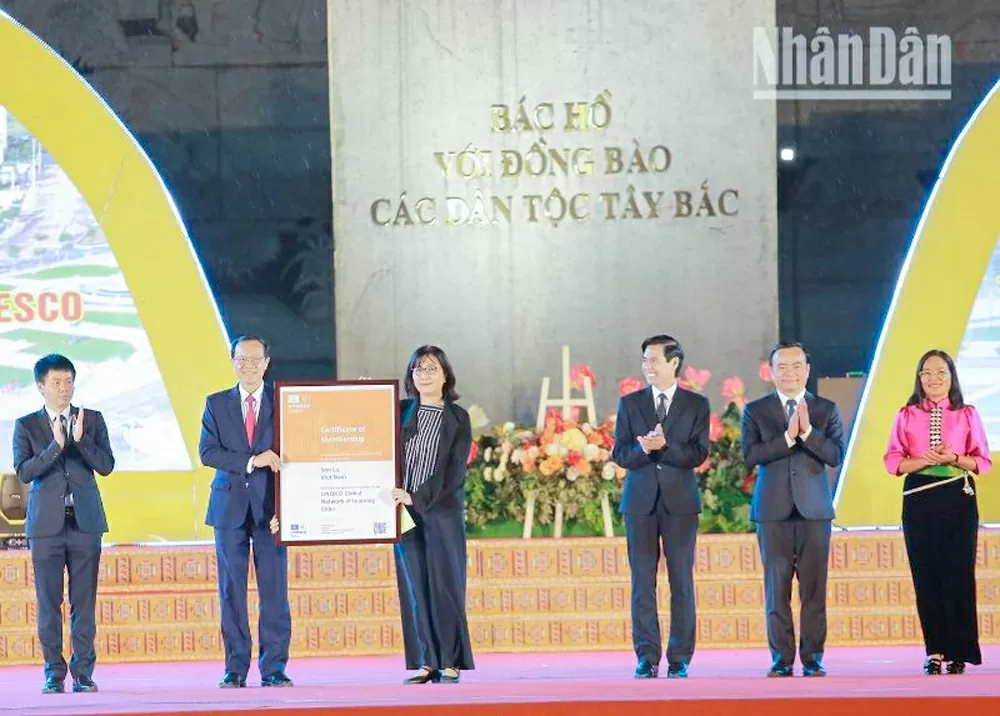
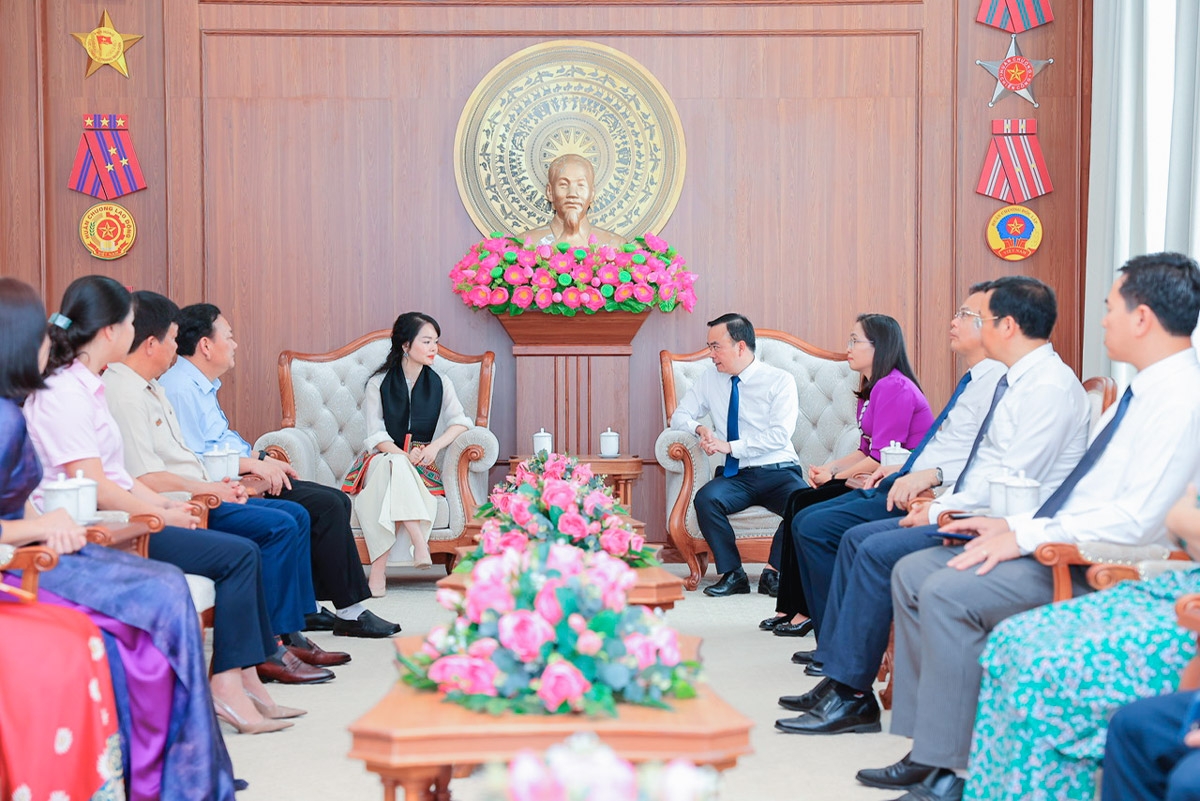
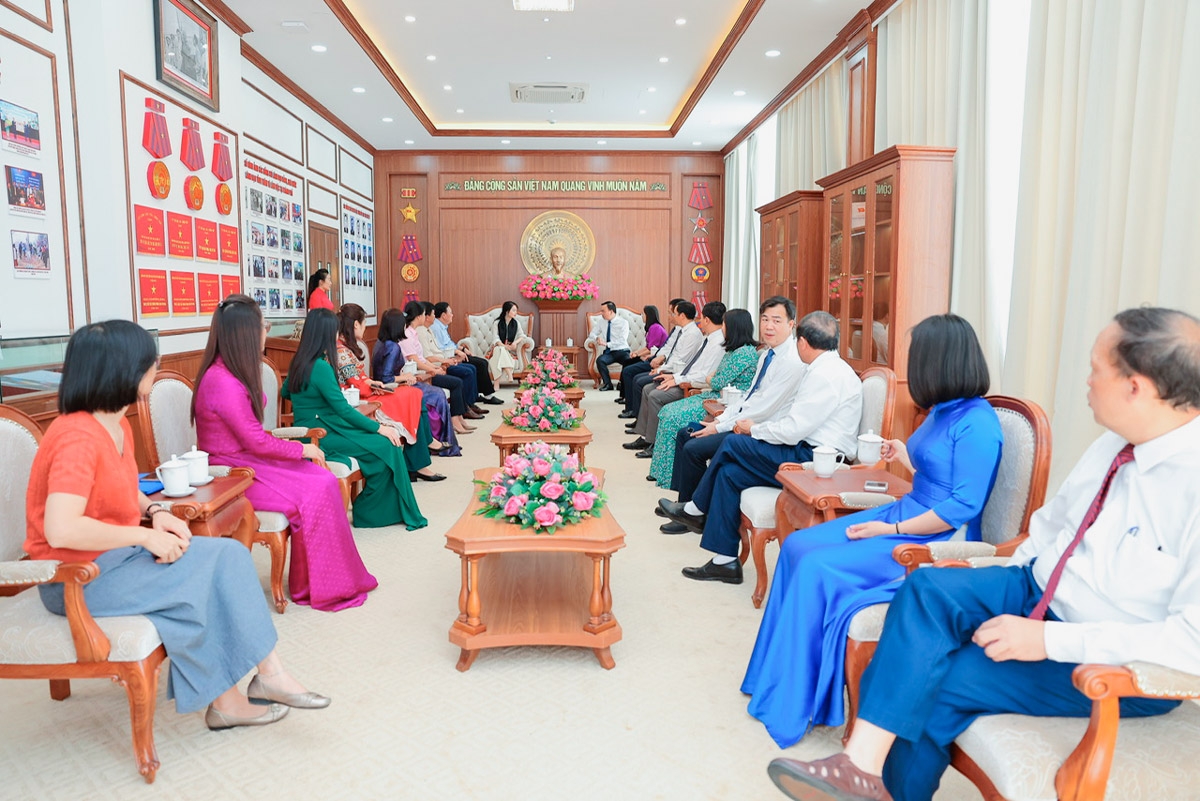

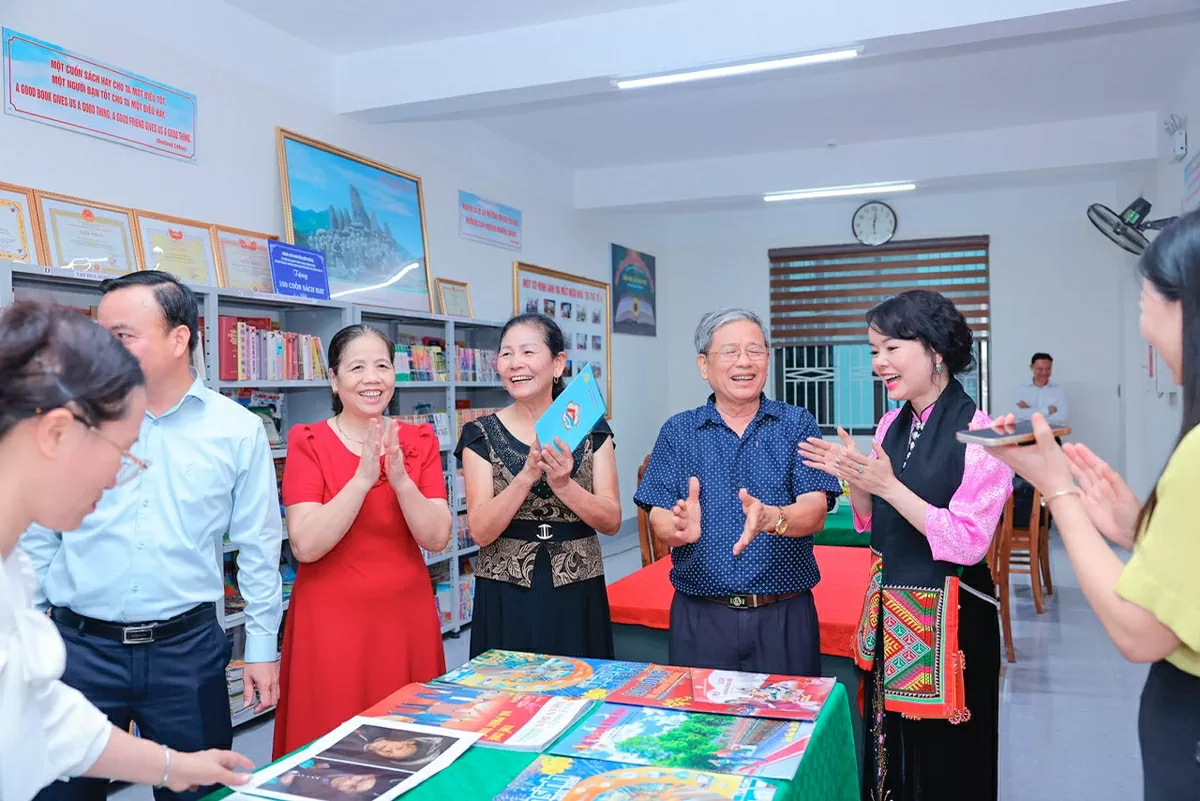
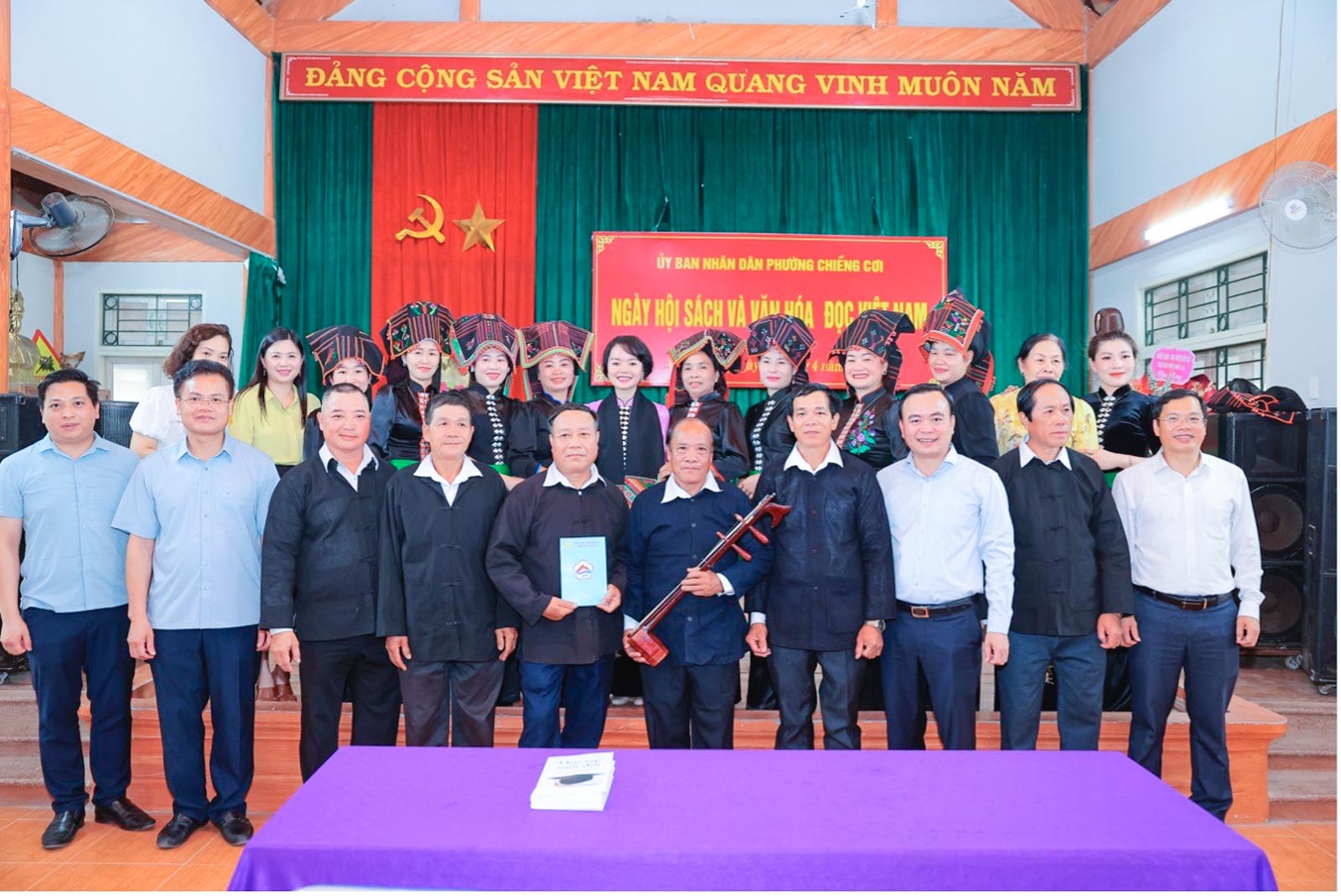
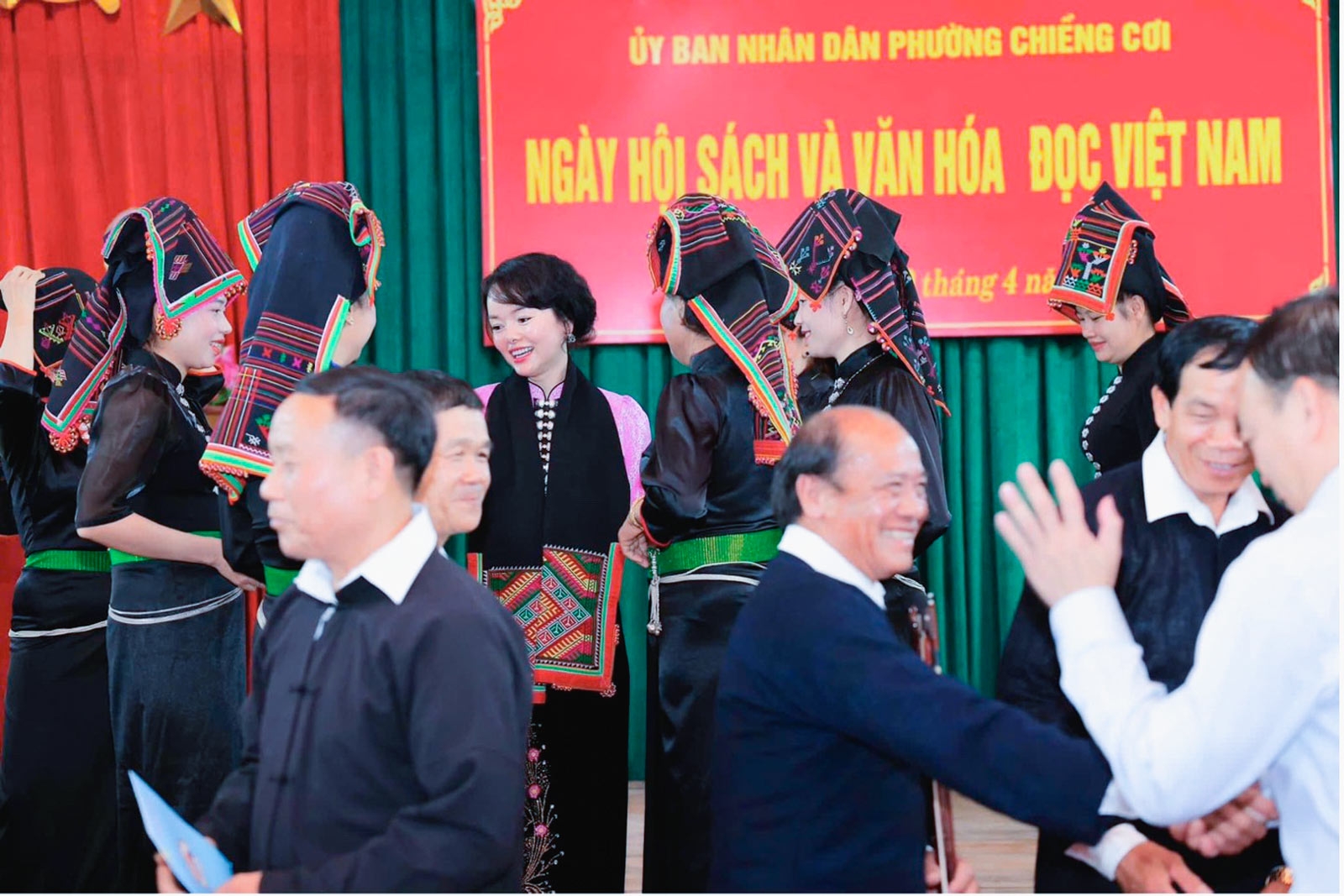
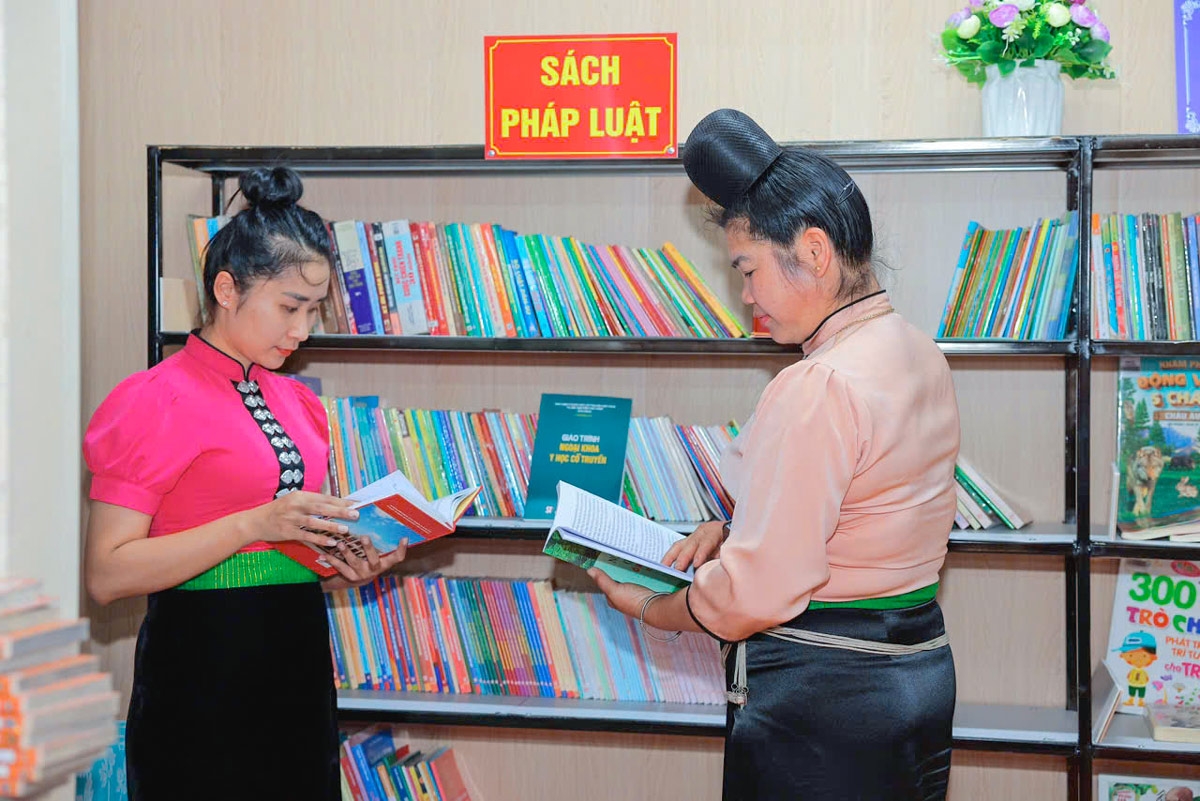
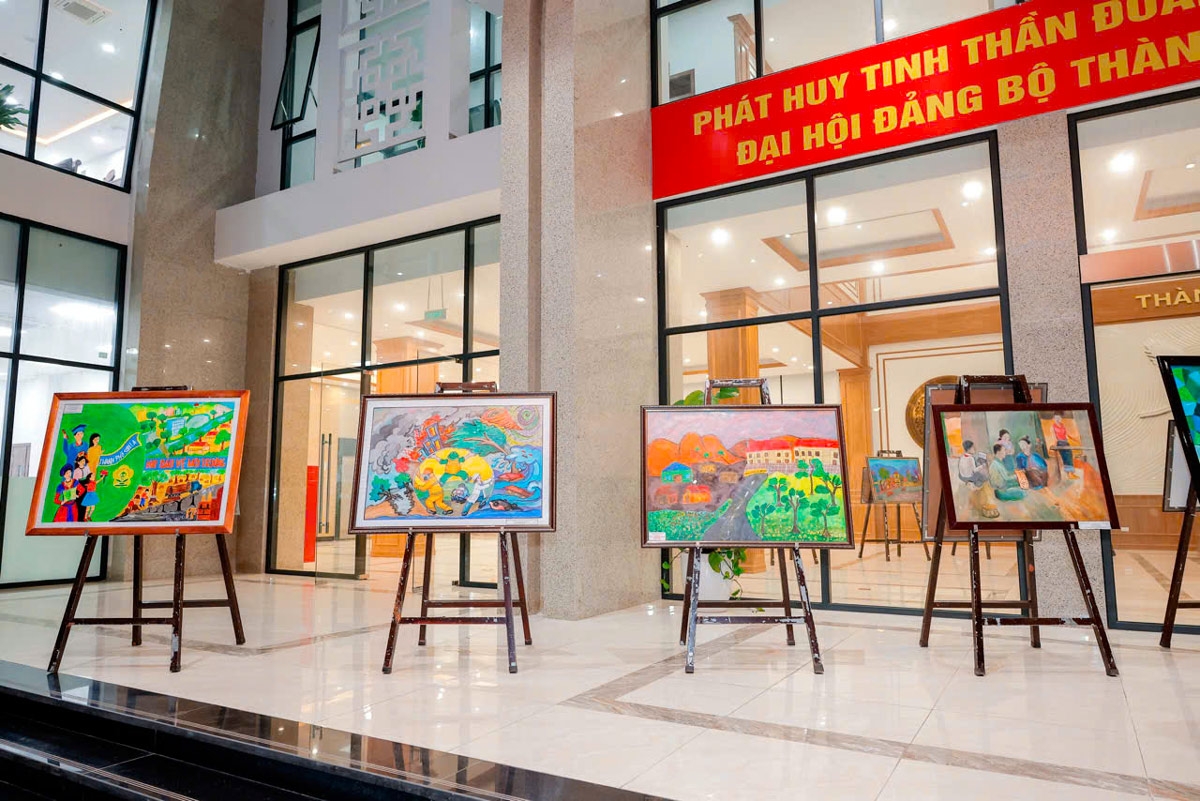
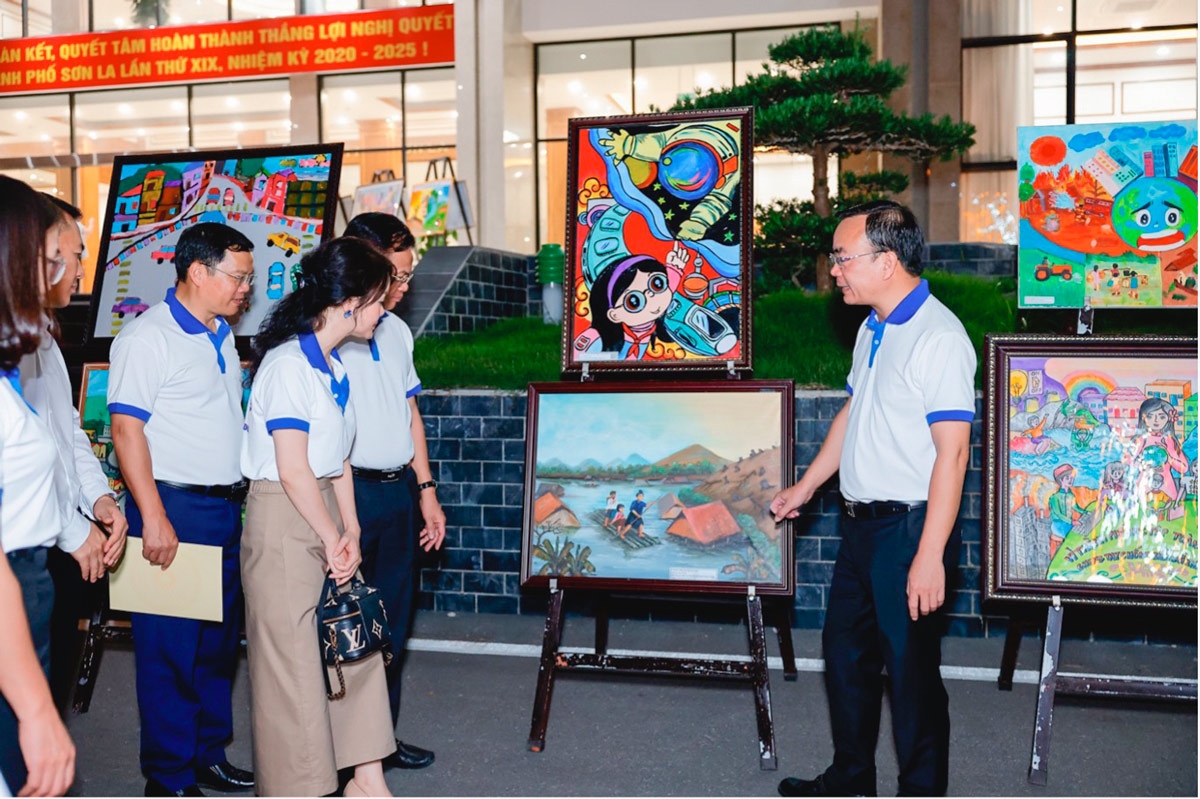
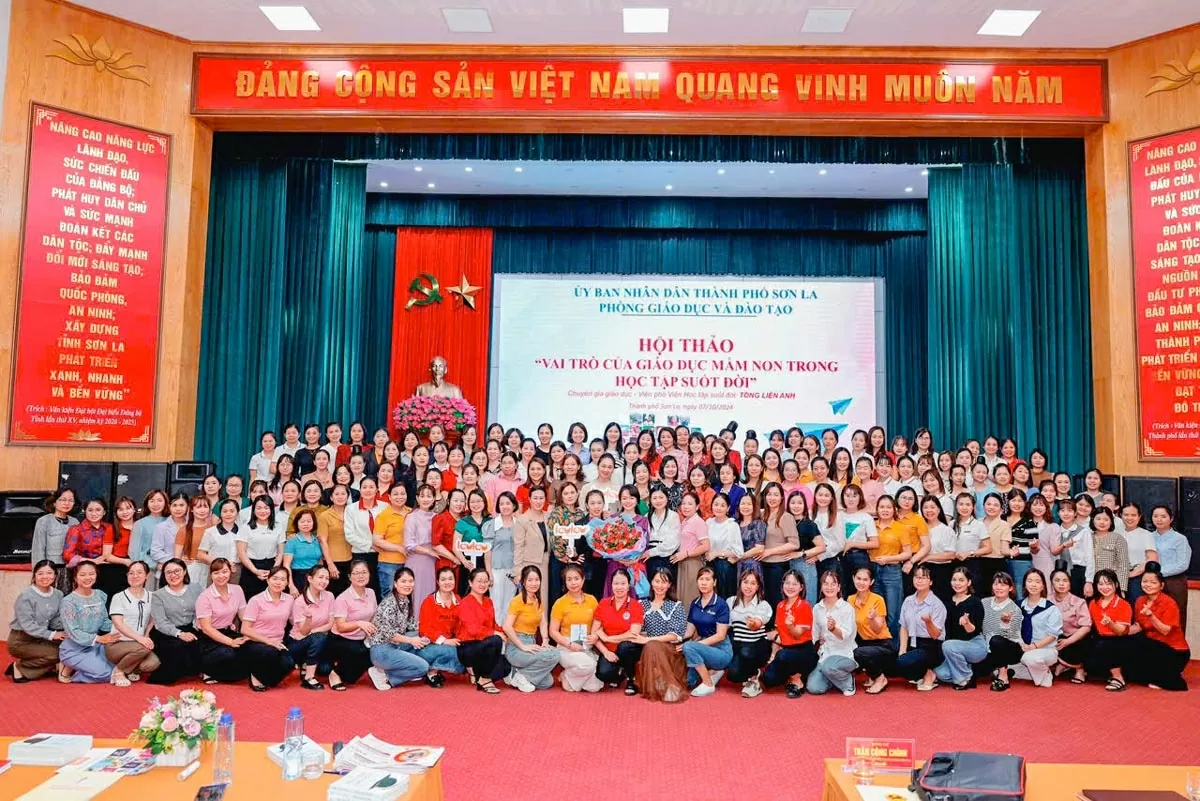
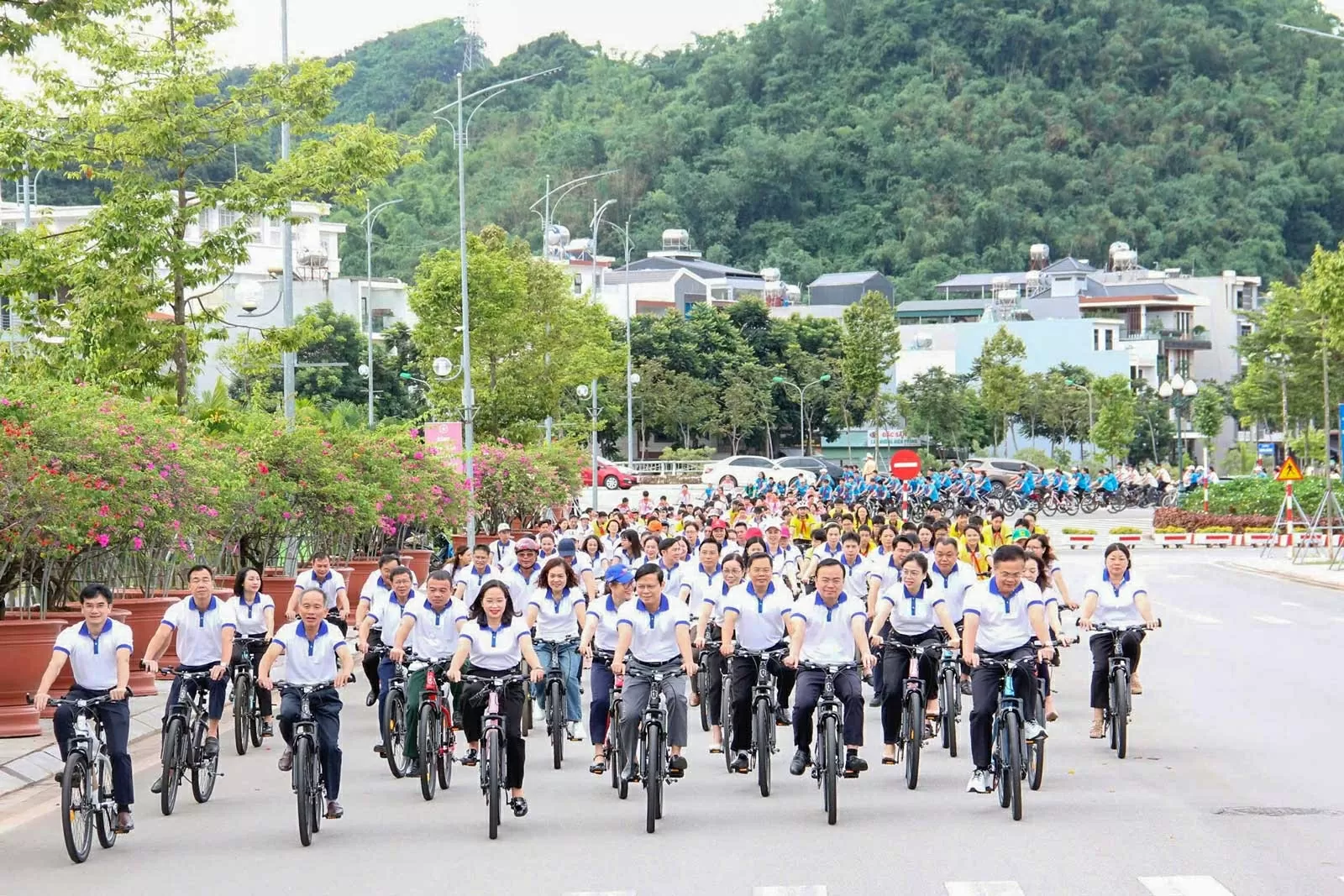 Hàng loạt hoạt động ý nghĩa nhân Ngày sách và văn hoá đọc Việt Nam, Tuần lễ hưởng ứng Học tập suốt đời… được tổ chức tại thành phố Sơn La.
Hàng loạt hoạt động ý nghĩa nhân Ngày sách và văn hoá đọc Việt Nam, Tuần lễ hưởng ứng Học tập suốt đời… được tổ chức tại thành phố Sơn La.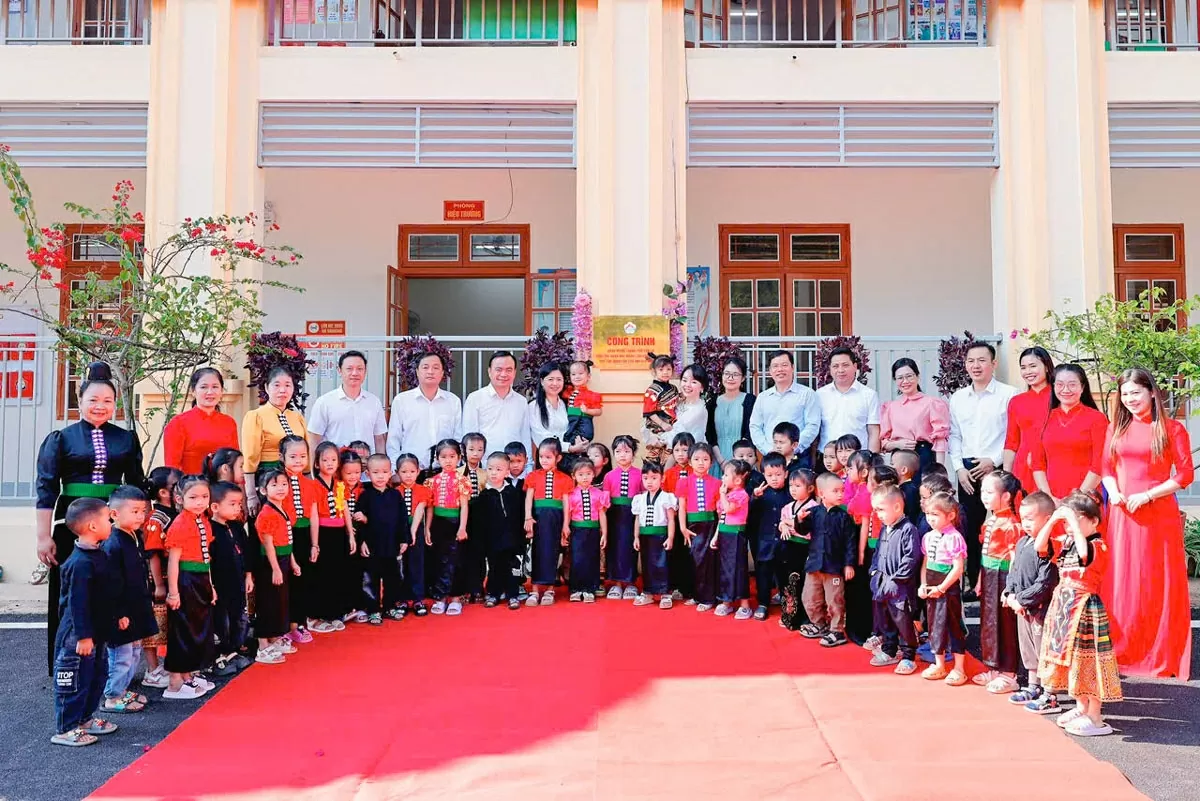 Hàng loạt hoạt động ý nghĩa nhân Ngày sách và văn hoá đọc Việt Nam, Tuần lễ hưởng ứng Học tập suốt đời… được tổ chức tại thành phố Sơn La.
Hàng loạt hoạt động ý nghĩa nhân Ngày sách và văn hoá đọc Việt Nam, Tuần lễ hưởng ứng Học tập suốt đời… được tổ chức tại thành phố Sơn La.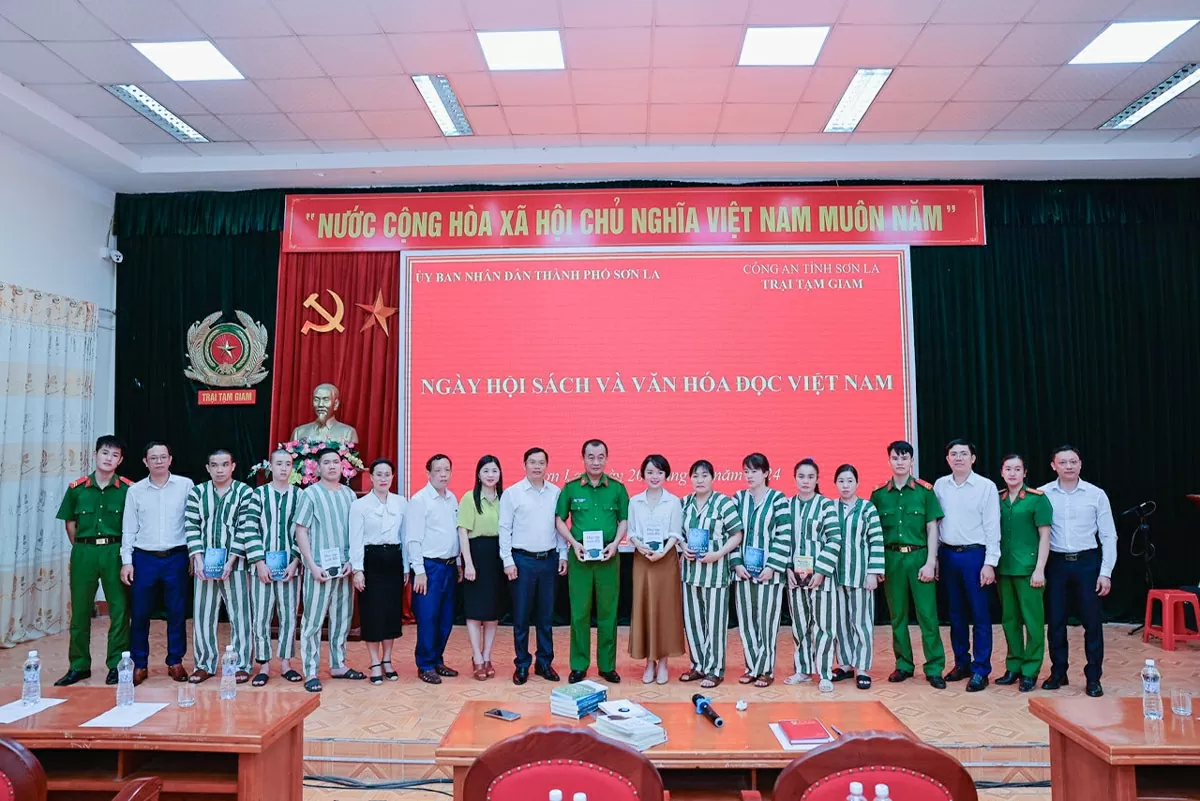 Hàng loạt hoạt động ý nghĩa nhân Ngày sách và văn hoá đọc Việt Nam, Tuần lễ hưởng ứng Học tập suốt đời… được tổ chức tại thành phố Sơn La.
Hàng loạt hoạt động ý nghĩa nhân Ngày sách và văn hoá đọc Việt Nam, Tuần lễ hưởng ứng Học tập suốt đời… được tổ chức tại thành phố Sơn La.
